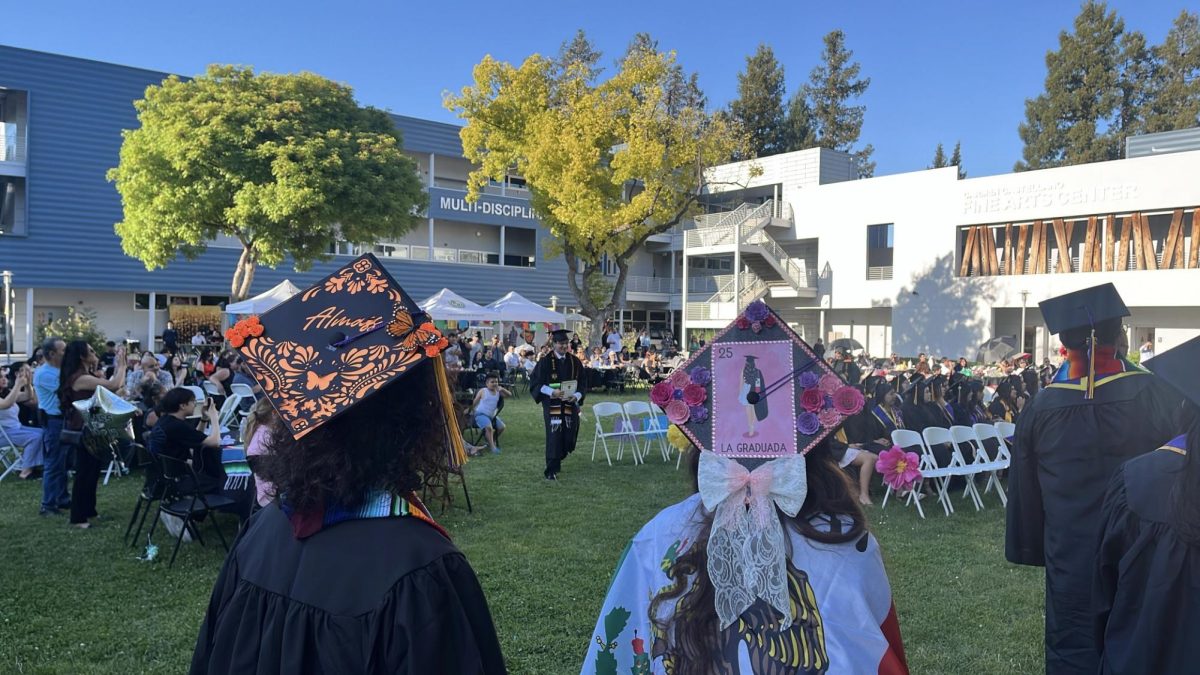Prop 215 unwelcomed on campus
In California, Prop 215 allows its residents to consume, carry and cultivate marijuana if it is for medical purposes, but San Jose City College students and staff have mixed emotions about marijuana use and promotion on campus.
Whether it is an advertisement in a magazine offering free marijuana edibles, a card offering free joints to students or just a slogan on clothing, marijuana is making its presence felt.
A government-funded facility such as SJCC does not allow the cannabis to be used or advertised on its grounds.
Blake Balajadia, director of student development and activities, will not give the stamp and date required to post ads at school for the controversial drug.
“We welcome all lifestyles at San Jose City College but we get federal funding in many areas and don’t want to jeopardize those funds in any way,” Balajadia said.
Luis Ramirez Martinez, 24, business communication major, said he feels students should be educated about cannabis.
Martinez is known to wear hats and shirts with marijuana paraphernalia on them.
“People think when you use medical marijuana, you’re just getting high,” Martinez said. “I was prescribed multiple narcotics that are addictive for nerve damage after being hit by a car and I don’t like to take the four or five pills for my pain when cannabis relieves multiple symptoms for me.”
SJCC has no in-depth course to take on the education of cannabis, but there is plenty of information in the community.
Gary Ledesma, SJCC counselor, said he believes college is not the place to promote the use of the drug and does not agree with the recreational use of it, but admits there are some medical values and believes the penal system has harsh penalties.
“You should have to do community service and go to drug counseling for a marijuana charge. Too much time is being given for crimes surrounding it,” Ledesma said.
The more medical marijuana is talked about, the more enlightened the community will be. Besides the Tetrahydrocannabinol, there is a drug called Cannabidiol that is linked to pain relief.
“My older brother has Parkinson’s and if cannabis would benefit him in any way, I’m all for it. It’s a good alternative for the harsher drugs, but people take advantage of it being legal for medical use,” Ledesma said.
Tommie Lee Prada, 32, said he has promoted cannabis for dispensaries for seven years but never on locations that do not permit it. “It is imperative to understand the vast possibilities of the medicine,” Prada said. “It is, in fact, a drug. Whether it’s recreational or medical, there are guidelines that must be met in order to continue being operable. Private, state and federal guidelines must always be met. If not, there are consequences.”
Martinez does not believe ther should be free joints promoted on campus, or banners that offer the drug, but thinks the school should offer more education on the drug’s medical uses.
When a parent gives cannabis to a kid in a pill, cream or edible from to help with their serious medical issues such (as) cancer, they’re not thinking ‘I’m using a recreational drug,’” Martinez said. “To them it’s medicine. They’re thinking ‘it makes me feel better,’ not ‘I want to get high.’”







